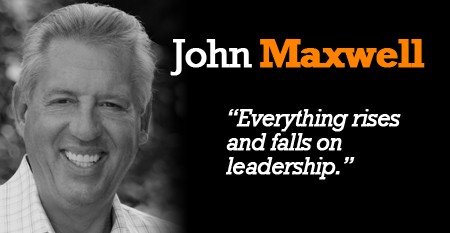The topic of “Employee Engagement” is something that many CEOs tend to struggle with. Long gone are the days where the executive leadership of a company can remain sequestered in their offices with an internal focus on hard metrics. Given the current economic climate, it takes far more than cost-cutting to survive. It is the CEO who understands the need for focus on the soft metrics of customer centricity and employee engagement that will create sustainable growth in revenue and brand equity. In today’s post, I’ll examine the need to have a fully engaged workforce…
Before you read any further, I want you to stop and ask yourself the following question: How many of your employees are truly passionate about your company, its values, its vision, its mission, and the role that they play within the organization? Don’t fool yourself…conduct a harsh, critical analysis and come up with a true headcount of the passionate employees within your organization.
Your answer to the question above should be a very telling sign about the overall health of your business. Are people just showing up and punching the clock to collect a paycheck, or are they personally consumed and committed to achieving the company vision? Are your employees corporate evangelists serving as a motivating force to be reckoned with, or do they gather in small groups to gripe and complain about all the things wrong with the company and its leadership?
The key to having an engaged workforce is to have a passionate workforce. And the simple truth of the matter is that no single person in the company can instill passion in the ranks like the CEO can. Despite the consensus recognition that employee engagement matters, the enormity of its impact on the company’s bottom line still appears to be misunderstood by most CEOs. I rarely talk to a CEO that doesn’t understand this principle in concept, but yet I rarely see chief executives who put theory into practice…
So it begs the question, why are CEOs listening but not taking action? The answer seems to be that CEOs continue to allocate considerable effort and resources toward engineering the corporate strategy. Yet, they seem to be unaware of what forces can prevent the said strategy from being delivered successfully. Not surprisingly, employee engagement is often the critical missing factor.
As the CEO you must also become the chief engagement officer. Operating in a vacuum and being out of touch is never a good position to find yourself in as the CEO. I have consistently espoused the value of walking the floor, dropping in on meetings on an impromptu basis, taking employees of all ranks to lunch, and any number of other items that focus on raising your internal awareness and creating a passionate workforce.
It is your passionate employees who are the franchise talent (regardless of position) you should be building around. If you can’t get employees to see the light and become passionate about the company and their contribution, then seek to replace them as quickly as possible. Just as passion is a positive, contagious trait so are apathy and dissatisfaction. Passionate employees are productive, energized, committed, and loyal assets. Apathetic employees quickly become disenfranchised liabilities that will hurt both productivity and morale. To drive home the point of how much I value passionate employees, I would take a moderately talented but passionate employee over a very talented but complacent employee eleven times out of ten…
Truly great companies are built around passionate employees. When you walk into a dynamic, thriving company you can sense the passion…you feel a certain buzz and fervor that pervades everything.
Contrast this with a company that feels as if it has no pulse…If you’ve ever walked into an organization that feels like rigor-mortis has set in, you know what I’m referring to…In today’s economy, the old saying that “the only thing worse than an employee who quits and leaves is the employee who quits and stays” has never been more accurate.
As a leader, you need to understand that your employees not only want to be led, but they want to be led by a passionate leader. Ultimately employees want to be passionate about what they do; in fact, they’ll go to the ends of the earth and sacrifice tremendously if passionate about the endeavor. Think of the employees that started off with Gates and Allen at Microsoft, or those that worked with Phil Knight in his garage before Nike even had a name, or those employees that endured the early days with Larry Page and Sergey Brin at Google…it was their passion and commitment that helped change the landscape of business, not their starting salaries.
To build an extraordinary company, you must light the fire in the bellies of your workforce…You must get them to feel passionate about your organization and to connect with your vision. You must get your employees to engage. As the CEO, your ability to transfer your passion to your employees is the essence of being a great leader…So much so that if you can’t accomplish this, you simply can’t be a great leader. Think of any great leader, and while you’ll find varying degrees of skill sets, intellect, and ability, I challenge to name even one that did not have passion, as well as the ability to instill said passion in team members.
Thoughts?







